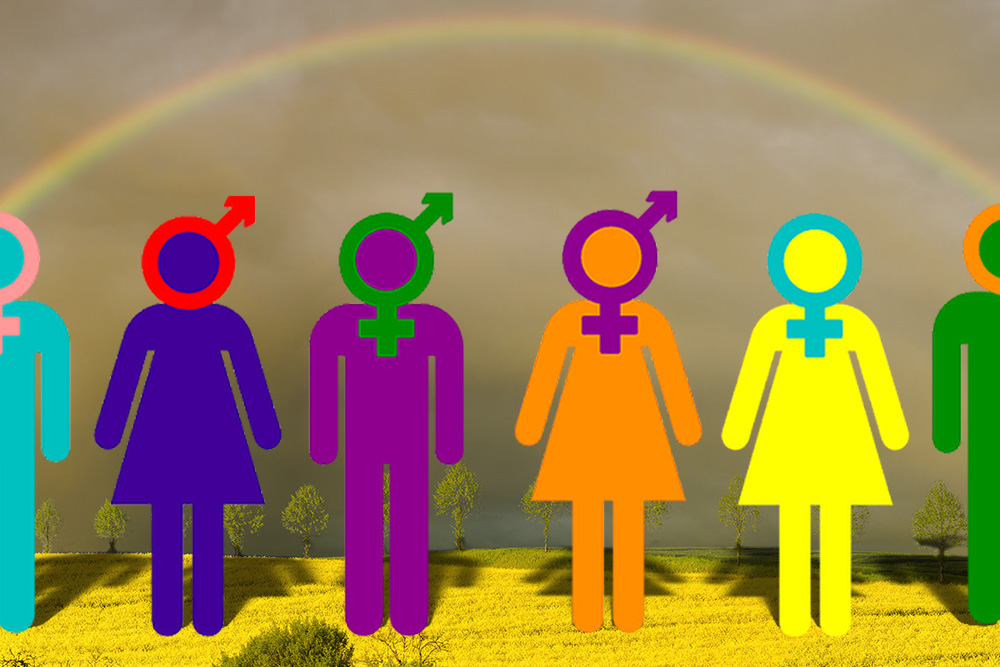Over the last several years, there has been much in the press about transgender individuals, transgender rights, and legislators battling over various issues (public bathrooms, etc.). In my practice, I have had a number of patients who are transgender, and even more family members of transgender individuals struggling with some aspect of this issue.
Therefore, I thought it might be helpful to try and set a framework, based on known facts and healthy principles, on how to relate to individuals in your family or community who identify as transgender.
Facts First:
- This blog only addresses issues related to transgender, not gay or lesbian issues or intersex conditions.
- What is transgender? The definition I am using is: “noting or relating to a person whose gender identity does not correspond to that person’s biological sex assigned at birth.” (dictionary.com)
- Causes of transgenderism: Unknown. However, strong evidence supports this condition is neurobiological in origin and not characterological. The rate of gender confusion is up to ten times higher among those with Autism Spectrum Disorder than the general population. One study found that, within the Autistic group, 5% had gender identity issues, compared to 0.7% of the control group. Another study found the rate among the Autistic population to be 7.8%. [1]
Questions:
- During childhood and adolescence is there a normal period of gender uncertainty that a person can experience and NOT be transgender?
Absolutely yes! In fact, during childhood and adolescence, the brain is in a heightened stated of change and vulnerable to wiring in life experiences that are not originally in the DNA. Language, religious values, and sexually arousing stimuli can be wired in during childhood and adolescence. It has been known for many years that during puberty, individuals are at greater risk for developing paraphilias (sexual arousal to atypical things — sometimes pathological things). This is important to recognize, because not every person who experiences a same-sex attraction or a gender confused feeling will actually have a gender identity problem.
- How should Christians treat individuals struggling with questions of sexual identity?
With love, respect, kindness, and regard for them as individuals. I recommend focusing on character, not sexual preference. In other words, make value judgments based on character qualities (honesty vs. dishonest, kindness vs. cruelty, altruism vs. selfishness, loyalty vs. disloyalty, reliability vs. unreliability, etc.) rather than sexual preference. Learn to love people for who they are in character and don’t focus on their personal sexuality.
- Is it possible that heterosexual young people could be influenced by others who are in the LGBTQ community and have their sexuality confused by that community and, if so, what would cause this?
It is well known that all people can be influenced by others, and that adolescents are more vulnerable to recruitment and influence than those of older years. Examples of young people being influenced by various groups include: recruitment by gangs, extremist groups (which focus their recruitment on adolescents), and cults. The reason this occurs is that adolescence is a period of normal identity uncertainty, fear of rejection, feelings of inadequacy, and longing for a place to be valued, loved, and found special for who you are.
With this in mind, we can examine the likely impact on young people of a condemning and critical church and an embracing and validating LGBTQ community and realize that as long as the church remains critical and condemning, and the LGBTQ community communicates acceptance and love, the experience of love and acceptance will draw, while the fear of condemnation will drive away.
Therefore, the church has a real need to do some introspection and change its approach to how it deals with such questions — moving away from a behavior-oriented, judgmental approach, to a character-development and loving-the-individual approach.
- Does the LGBTQ community and their political supporters demonstrate a healthy concern for all citizens?
In my experience, they do not. Individuals, struggling with questions of gender confusion or sexual identity issues, and the entire LGBTQ community make up less than 3% of our society, while transgender individuals total less than 0.5%. I must praise the LGBTQ community for opposing and resisting the abuse, mistreatment, and discrimination of gay, lesbian, and transgender people. Abusive treatment and discrimination is wrong no matter who is being abused or mistreated. Yet, despite this real need to protect the rights of the LGBTQ community, some advocates have been imbalanced in their approach and are willing to injure heterosexuals in their zeal to protect their own constituency. Here is a case in point:
Several years ago, an issue arose in Tennessee, which exposed a lack of concern for all people by those who actively promote the LGBTQ agenda. In that state, psychologists’ licensure was tied to adhering to the ethical standards of the American Psychological Association (APsychA). In pursuit of advancing the LGBTQ agenda, the APsychA changed its ethical guidelines and made it an ethics violation for a psychologist to refer out a gay couple for couples counseling based on the religious beliefs of the psychologist. In other words, if the psychologist believed it was a violation of their conscience to counsel same-sex couples and wanted to refer the couple to another psychologist who did not object to providing this counseling, the new rules would have made such a referral unethical and, since adhering to the ethics of the APsychA was required to maintain licensure to practice, a psychologist making such a referral risked revocation of their license.
In response to this, legislators in Tennessee introduced a bill which would eliminate this risk and allow a psychologist to refer such cases to other providers. The bill passed the Tennessee legislature and, while it waited the signature of the governor for implementation into law, I received an urgent call from the American Psychiatric Association (APA). At that time, I was serving as the President of the Tennessee Psychiatric Association (TPA) and the APA contacted me, wanting the TPA to write a brief to the governor advocating he veto this legislation. In discussion with the APA leadership, I affirmed my concern for the protection of the rights of the LGBTQ community, but also my concern for all human beings, not just the LGBTQ community. I had concerns for the mental well-being of the psychologists who might find themselves coerced into providing care that violated their consciences. I also expressed my concern that the quality of care the LGBTQ patients might receive from individuals, who morally opposed their lifestyle, might be compromised and it would be in the LBGTQ patient’s best interest to be referred. However, the APA leadership only expressed concern for the LGBTQ community and were not willing to pursue any compromise that protected the rights of all human beings involved.
Our society is in a place of major flux and the issues around gender often stir intense emotions and make healthy discussion difficult. Our challenge is to move past our own emotional gut reactions and refocus our actions on love for others, challenging ourselves to deal with others from compassion and concern for their welfare — as we would have them deal with us. In short, our approach, as Christians, in dealing with others, no matter who they are, is always to be like Christ — to love others more than self, treating others with respect, kindness, and interest in their welfare.
[1] Glidden, D., et al., Gender Dysphoria and Autism Spectrum Disorder: A Systematic Review of the Literature, Sexual Medicine Reviews, Volume 4, Issue 1, January 2016, Pages 3-14
Strang, J.F., Kenworthy, L., Dominska, A. et al. Increased Gender Variance in Autism Spectrum Disorders and Attention Deficit Hyperactivity Disorder, Arch Sex Behav (2014) 43: 1525. https://doi.org/10.1007/s10508-014-0285-3
de Vries, A., et al, Autism Spectrum Disorders in Gender Dysphoric Children and Adolescents J Autism Dev Disord. 2010 Aug; 40(8): 930–936.










 using your credit or debit card (no PayPal account needed, unless you want to set up a monthly, recurring payment).
using your credit or debit card (no PayPal account needed, unless you want to set up a monthly, recurring payment). instead?
instead?